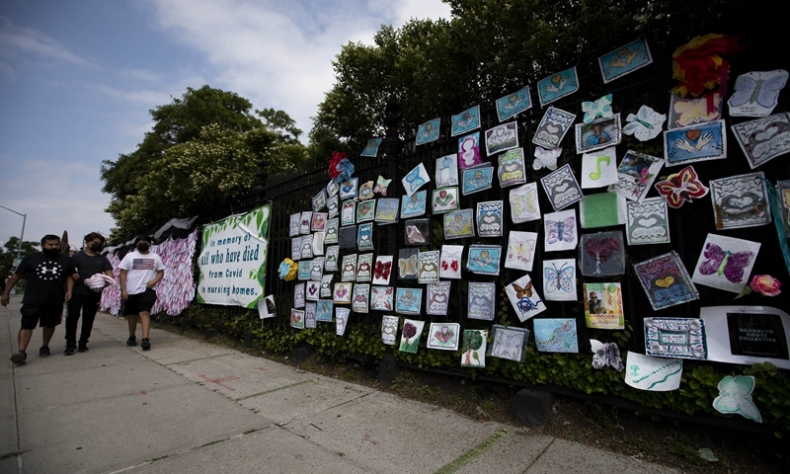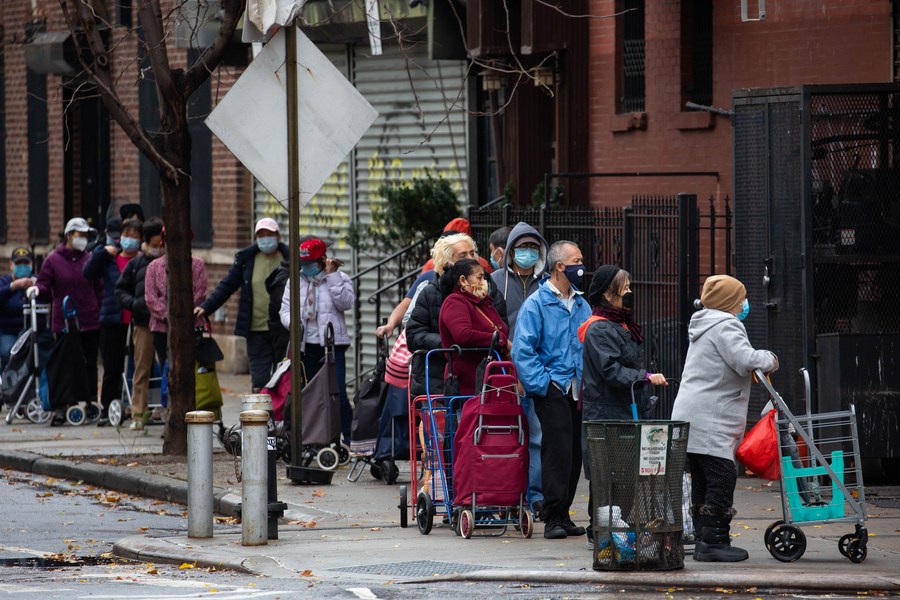The Mask of Hypocrisy

Long praising itself as the ‘beacon of human rights,’ the U.S. turns out to be the opposite of what it claims to be. A bottle of self-reflection is exactly what the doctor ordered.
While wreaking havoc on people’s health, the COVID-19 pandemic also helps shed more light on the reality of human rights in the United States, which run counter to hypocritical claims on the part of U.S. politicians.
The right to life is the paramount part of human rights, on which all other facets of rights depend. When the coronavirus pandemic broke out in the U.S. in 2020, the Donald Trump administration downplayed the crisis and was reluctant to take measures to contain the spread of the virus, resulting in a spike in infection cases. Swayed by political forces, the U.S. has missed out on the empowerment of the most advanced medical equipment and technologies in the world. As a result, many Americans lost their lives or health, paying a heavy—the ultimate, even—price for the sheer irresponsibility on behalf of their nation’s politicians.
To date, confirmed cases have surpassed 36 million while the death toll is over 610,000. However, these politicians deliberately turn a blind eye to this catastrophe, while at the same time feverishly lambasting human rights in other countries.
In a striking contrast to their apparent nonchalance toward the very concept of human life, they are going all out to save the stock market, which crashed in the initial stage of the pandemic outbreak. In just under one month, March 13-April 9, 2020, the Federal Reserve’s quantitative easing plan as well as loans to support the U.S. economy added up to $3 trillion. Unlimited quantitative easing and credit issuance have worsened the wealth gap. According to reports by the Institute for Policy Studies and the Americans for Tax Fairness, while COVID-19 hit the global economy hard, U.S. billionaires gained an extra $1.1 trillion in wealth over 10 months to January. By January 18, 660 U.S. billionaires’ wealth had totaled around $4.1 trillion, an increase of 38.6 percent over that of March 2020, when stock prices took a tumble.

Dominated by capital, the U.S. will naturally choose to put the market before human, and wealth before human rights. By nature, capital pursues interest, and thus, in a society based on private ownership, the interests of capitalists and a handful of elites will inevitably outweigh the wellbeing of the general public—a fact arguably exemplified by the increase in deaths caused by COVID-19 among those less well-off.
The damage brought on by the pandemic brings us to the topic of freedom. Donning masks and social distancing are practiced at scientific advice to combat the pandemic. However, a lot of people in the U.S. refuse to do so, all in the name of freedom. From John Doe to congressman, many have turned their back on these requirements and even resist getting vaccinated.
Freedom is an important part of human rights, but as members of a civilized society, they should also understand that obligations and rights come together. Their refusal to put on a mask and practice social distancing reveals their selfishness in that they are interested only in their own rights to freedom, regardless of others’ rights to life and health.
As the pandemic swept across the U.S., political viruses, too, went on the prowl. Racism has long been lurking in all aspects of social and political life in the U.S., but this wave of political viruses amid the COVID-19 pandemic is one far more extensive, highlighted by numerous public bouts of anti-Asian racism. The National Broadcasting Co. (NBC) reported on September 17, 2020 that a survey showed a quarter of Asian Americans had fallen victim to racist intimidation over the past year.
Long praising itself as the “beacon of human rights,” the U.S. turns out to be the opposite of what it claims to be. A bottle of self-reflection is exactly what the doctor ordered.
 Facebook
Facebook
 Twitter
Twitter
 Linkedin
Linkedin
 Google +
Google +










